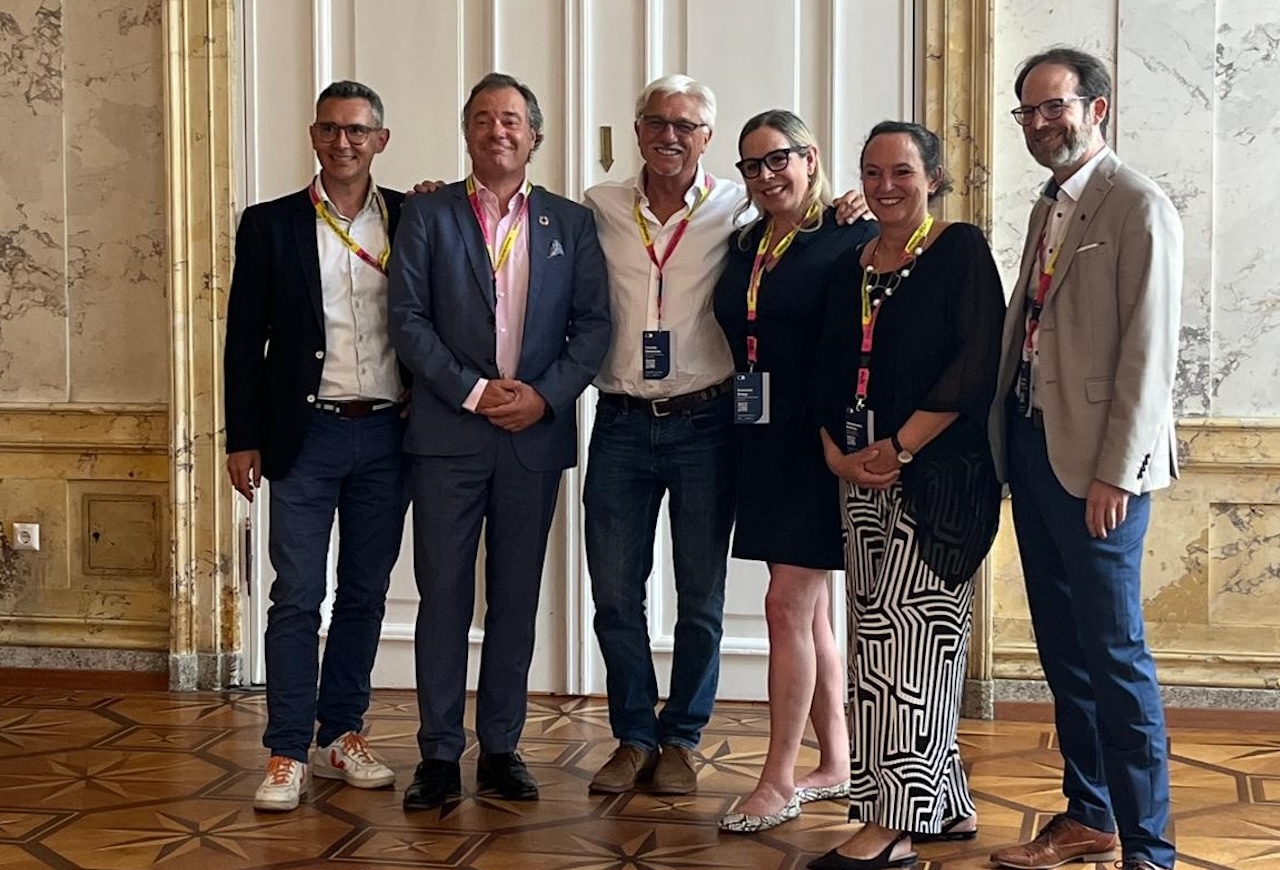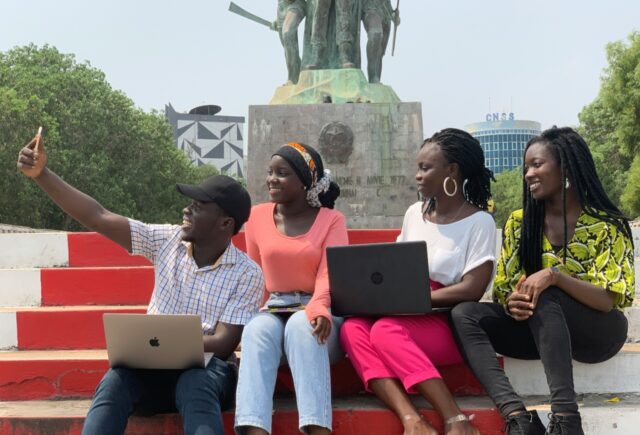There are challenges and opportunities for Austria’s nascent but evolving impact investing ecosystem, according to Alexandra Bolena, one of the three co-founders of Bundesinitiative Impact Investing’s Austria Chapter.

Alexandra Bolena started her career in politics before moving into finance to work for a financial consultancy. Early in her financial career, she saw the potential offered by sustainable investing to address the world’s social and environmental challenges, following the issuance of the first green bond by the European Investment Bank in 2007. Unable to persuade her colleagues of the merits of sustainable investing, she took a hiatus of two years to launch a restaurant, now managed by her son, before re-joining the world of investment.
In the last 10 years, she has taken a special interest in impact investing, becoming an ambassador at Impact Investor Network Austria (IINA), an informal network of like-minded individuals pushing for greater awareness and adoption of impact investing in Austria. She has also authored a book on sustainable investing for dummies and lectured on impact investing at several higher education institutes across the country.

As a representative of the IINA, Bolena and several of her colleagues joined the Bundesinitiative Impact Investing (BIII), the GSG’s national partner in Germany, several years ago. They petitioned the BIII over the years for the establishment of an Austria chapter to complement the group’s existing regional chapters, wanting to accelerate the development of impact investing in the country with BIII’s support. Their perseverance paid off and the Austria chapter was launched at the end of May.
“The political and financial appetite for impact investing in Austria is too small to justify national partnership status with the GSG. But with the support of the BIII, we now have a formal structure that we hope will have greater success in raising political and media awareness of the need for impact investing and garner support from political and financial stakeholders, including banks and pension funds, that may justify independent membership in the future,” says Bolena.
Slow burn
Bolena says that there are two main reasons why impact investing has been slow to take off in the country. In Austria, like in neighbouring Germany, the majority of people still wholly rely on the state system for their pensions, so the market in private pensions is relatively small and for the most part, disinterested in impact investing. There are also very few family offices in Austria compared to other European countries, where they have been among the main protagonists driving the adoption of impact investing.
“Private pensions in Austria have been so preoccupied with meeting regulations such as the SFDR and the CSRD that they feel they don’t have the time to consider anything else. Impact investing feels like a step too far,” says Bolena. “I have also seen how impact investing has been pushed by the younger generations coming up through family office, but we just don’t have a family office scene like elsewhere. What we do have is Charly Kleissner.”
Bolena is referring to the co-founder of Toniic, a global membership organisation of asset owners committed to accelerating impact investing. Originally from Austria, Kleissner is well known in the impact investment community both in Europe and the US where he now lives. He has also co-founded KL Felicitas Foundation, a family foundation, with his wife Lisa, and Social Impact International, both of which support social entrepreneurs worldwide, the latter through regional accelerator programmes.
“Kleissner is now based in the States but he still holds a big influence on the Austrian impact investing ecosystem. We wouldn’t have had the motivation to launch the Austria Chapter without his backing and without the groundwork he has already laid in promoting impact investing in the country. He’s very charismatic,” she says, explaining that Kleissner was also working on the launch of an Austrian impact bank that was currently going through regulatory approval.
Austria’s impact ecosystem
Since the launch of the Austria Chapter, the future of the IINA is not clear, says Bolena. Many of its members are or will be part of the Austria Chapter. Membership will also include people involved in the countries two impact hubs, part of the global Impact Hub community of founders, creatives, investors, established companies and NGOs working together for positive societal change and development.
“We have two impact hubs in Vienna and Tyrol which act as accelerators as well as working spaces for stakeholders in impact. These are places to meet and places to be,” she explains.
Bolena says Austria had many promising startups and social enterprises and that they received substantial support at pre-seed and seed stage, in particular from grant-making schemes run by the Austria Wirtschaftsservice Gesellschaft (AWS), the Austrian federal development and financing bank for the promotion and financing of companies. Support has also come from FFG, the Austrian Research Promotion Agency, the national funding agency for industrial research and development in Austria. But the lack of a sizeable impact-focused venture capital and private equity ecosystem made scaling for these enterprises very difficult.
“After seed stage you have a valley of death. Before these companies manage to reach any meaningful scale or turn a profit they face a really tough fundraising environment. There is a business angel scene in Austria but it is very small and those that manage to scale usually to do so with investment from abroad.”
Challenges ahead
The Austrian market faces many challenges according to Bolena, chief among which she says is a misunderstanding of what impact is and how it can work beyond the realms of philanthropy.
“This image still persists and one of the biggest challenges will be to change mindsets,” she says. “To overcome this we will work with investors to show them how impact can work for them, society and the planet through best practice examples, sharing knowledge and experiences.”
Bolena sees the association of many Article 9 funds with impact funds as contributing to this misunderstanding.
“This SFDR regulation has created some confusion about what it means to invest in impact, especially when you consider that investing in impact usually means investing in illiquid assets. And yet many daily dealing UCITs funds for example, will have Article 9 status and call themselves impact. That creates confusion.”
Very Austria-specific regulations are also making it tricky for investors to channel money into impact, according to Bolena. One of these governs Austria’s severance payment model, which offers employers a choice of eight occupational pension/severance funds into which they are required to contribute a monthly untaxed payment of 1.53% of gross wages. If an employee leaves their place of employment, even if they resign on their own accord, they are entitled to severance pay.
But Bolena says these funds could only invest into investment funds or equity holdings originating from OECD countries and that only 5% of their assets could be held in illiquid assets, severely restricting where investors could invest.
“These rules have been under discussion for over a decade and we’re still waiting for what most stakeholders believe to be an overly restrictive system, to change.”
Bolena says that the rules governing Austrian non-profit foundations were also more restrictive than elsewhere. “They wouldn’t be allowed to finance social impact bonds for example, because they’re not allowed to make money from their investments.”
A changing mindset
Nevertheless, Bolena is seeing a shift underway, with new financing mechanisms targeting impact being adopted successfully. She gives the example of social impact bonds (SIB)s launched in Austria, including by Erste Stiftung, a savings bank private foundation in Austria.
The IINA was recently invited by Erste Stiftung to a presentation alongside a range of stakeholders, including politicians, about the SIB which ran from May 2020 to March this year and was deemed a financial success.
“Everyone agreed it would need to be done again. I think the politicians in the room were surprised by its success and would back further issuances,” she says.
Dormant funds provide another area of opportunity and Bolena says that there has been “talk to use these funds to finance social impact projects across the country”.
Finally, one of the aforementioned occupational pension/severance funds Fair Finance, has launched a Social Entrepreneurship Venture Capital Fund for its clients and Bolena says the company planned to launch a second in the near future.
Looking ahead
Bolena says that with the launch of the BII’s Austria Chapter she and co-founders Alexander Ertler and Stefan Kainz were busy organising strategic workshops to decide on the organisation’s strategy and plans for the future.
“Questions such as media involvement, political engagement all have to be ironed out still. We are in the process of positioning ourselves. Everyone is fully engaged.”
Bolena says she is positive for the future and hopes that in 10 years’ time she won’t have to explain what impact investing is and that investors are dawn to the additionality offered by impact funds.
“I hope that institutional investors step up and accept double materiality as part and parcel of any investment,” she adds. “We want the Austria Chapter to be the one stop shop for impact for anyone who wants to get involved in the industry or even just to ask a question.”





